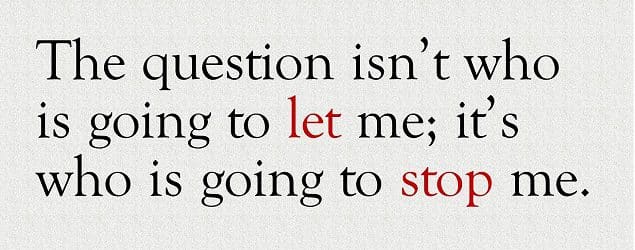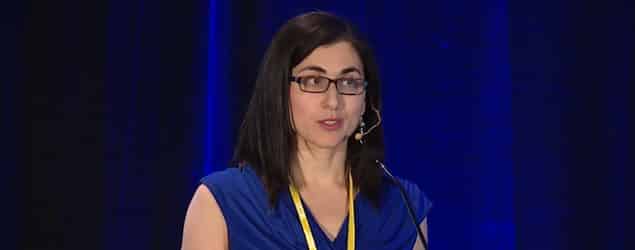Onkar Ghate on the State of Free Speech
On October 19, 2017, Onkar Ghate, senior fellow and chief content officer at the Ayn Rand Institute, joined Dave Rubin and Jordan B. Peterson to discuss the state of free speech in America. This panel, which took place at Clemson University, is part of a series of events on free speech that are organized and sponsored by the Ayn Rand Institute and are made possible by the generous support of our donors.
Here’s an edited transcript of Ghate’s initial remarks on the nature and value of freedom of speech:
Ideas are powerful. So, if you look historically, authorities have tried to control ideas because they’re so powerful. Most societies have never had freedom of speech. And even when you look in the West, the first comprehensive philosopher, Plato, has a system in which you don’t have freedom of speech. And it’s because he doesn’t think most people can reason — they’re not autonomous in that kind of way. So, he has Philosopher Kings who were at the top. They can think, they can reason, so they have full freedom, but the people underneath don’t.
[Freedom of speech] was a radical idea that came as a result of the Enlightenment. The individual, each individual, has within them the power to control their own mind, to direct their own thinking and to reach knowledge. So just as it was a radical idea, in the way the American founders framed it [in terms] of the pursuit of happiness, there’s also the issue of the pursuit of truth, and that each individual is capable of doing that. He might default, he might not really be pursuing that, but he’s capable of doing that. But the only way that he can do that is if he’s free — and that means no authorities hemming him in and telling him, “You can’t look at that, you can’t hear this person, you can’t investigate this,” in the way they tried to hem in Galileo, and say, “No you cannot do this; you’re under house arrest, no more investigation.” You have to be free to do that.
To really value free speech, you have to have this view of yourself that, “I’m capable of doing this, I’m worthy of doing this, and I demand my freedom — and I’m not going submit to any authority telling me what to do.” Even if you put an Albert Einstein, like Plato’s idea of a Philosopher King, at the top of government, I would not submit to him telling me, “Well, don’t look at Holocaust deniers because it’s all irrational.” I think it is all irrational, but I need to make up that opinion or belief for myself. If I want to look and read some Holocaust deniers, I have to be free to do that, to look at and say, “Oh no, this is all garbage, it’s all irrational.” So, the value of free speech comes from a conception of yourself as a pursuer of truth, and I think the postmodernists — who I call the anti-Enlightenment crowd — are driving into people that you’re not capable of that. And you won’t value free speech if you really think you’re not capable of that.
During the event, Ghate also commented on the following issues:
- Is the First Amendment’s protection eroding?
- What is “self-censorship”?
- How do you recognize when you’re being pushed in a collectivist direction?
- Are citizens responsible when their government fails to protect free speech?
- What can one do to get serious conversations going?
- What’s the distinction between intellectual/moral self-censorship vs. governmental failure to protect free speech?
- What does the much-ignored history of the First Amendment tell us?
- Is public education compatible with the First Amendment?
* * *
For more news on ARI’s activities in the United States and abroad, subscribe to Impact Weekly.



